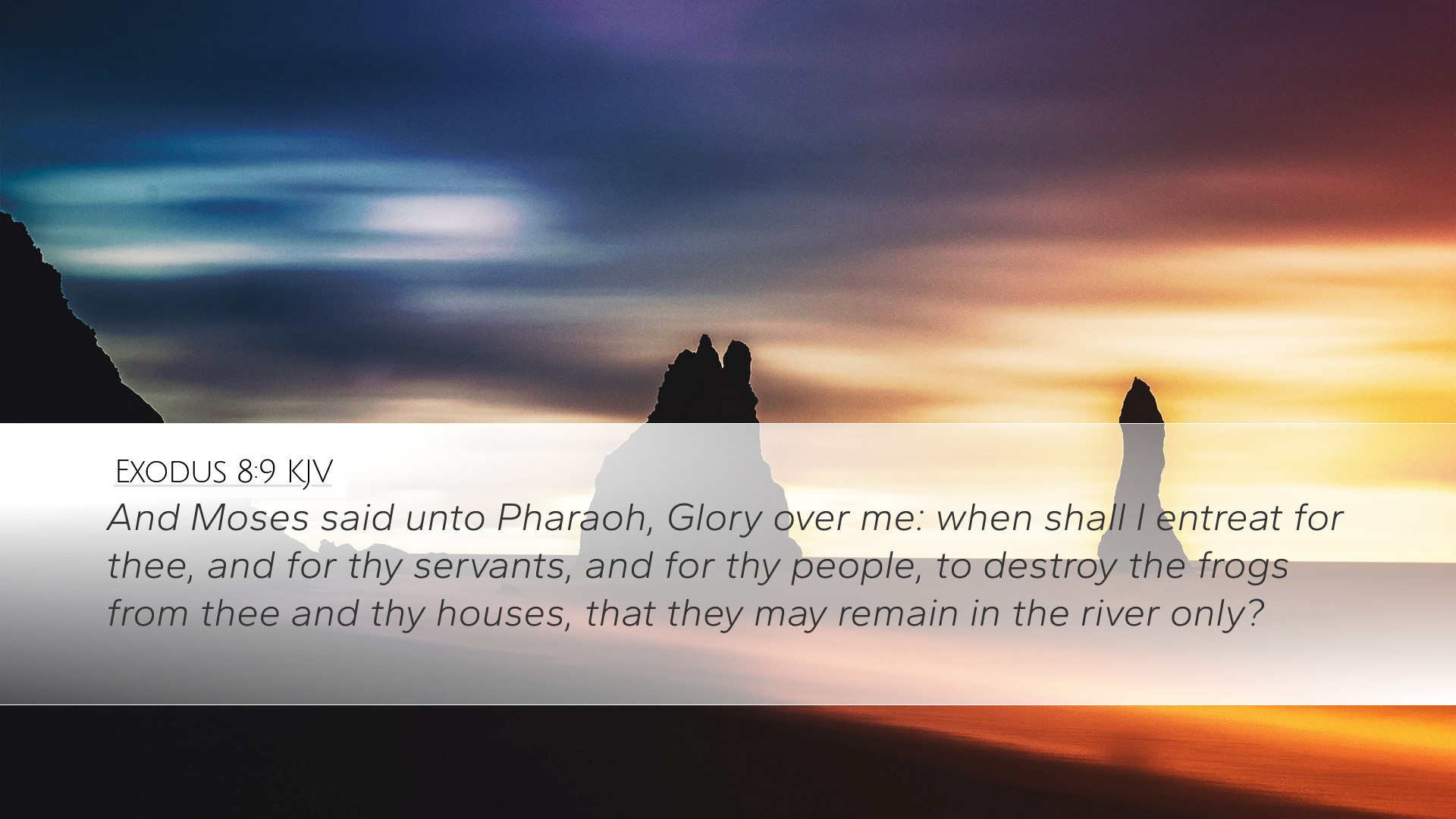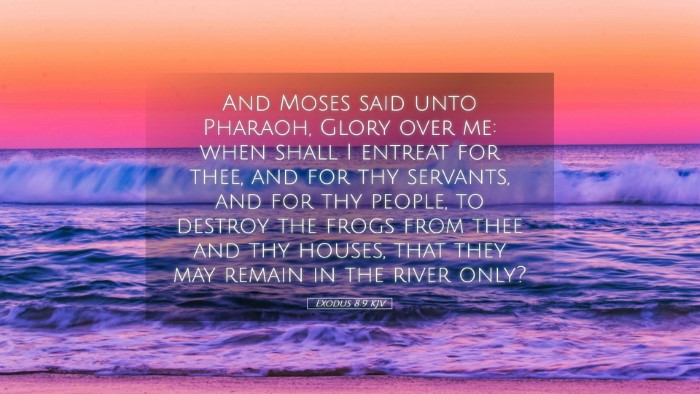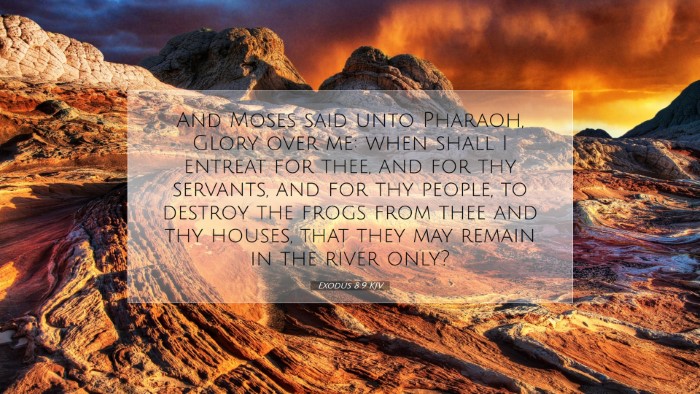Commentary on Exodus 8:9
Exodus 8:9 (ESV): "Moses said to Pharaoh, 'Be pleased to command me when I am to plead for you and for your servants and for your people, that the frogs be cut off from you and your houses, and be left only in the Nile.'"
Contextual Background
The verse in focus occurs during the second of the ten plagues inflicted upon Egypt. The Israelites, enslaved by Pharaoh, are caught in a divine confrontation between the God of Israel and the Egyptian pantheon. The plague of frogs signifies both God’s judgment and His sovereignty over creation, calling into question the power and influence of Egyptian deities, particularly Heket, the goddess of fertility and childbirth, often depicted with a frog's head.
Key Themes and Insights
Covenantal Authority
Moses’ dialogue with Pharaoh reveals a deep understanding of divine authority and human responsibility. Moses does not act as an arbitrary figure but portrays himself as a mediator between God’s will and Pharaoh’s request. This anticipation of Pharaoh’s command exhibits Moses’ humility and submission to God's Plan, recognizing the importance of divine obedience.
Intercession and Prayer
The act of pleading for Pharaoh invites reflections on the concept of intercession in prayer. Moses acts as an intercessor, not solely for his people but even for Pharaoh and the Egyptians. This highlights a profound theological principle regarding the nature of divine mercy and the opportunity for repentance, illustrating God’s desire to extend mercy even towards the oppressor.
Human Response to Divine Judgment
Pharaoh's hardened heart, as evidenced in the larger narrative, serves as a cautionary tale regarding human resistance against divine intervention. His request for relief from the frogs reflects a momentary recognition of his helplessness, yet his eventual refusal to acknowledge God reinforces the themes of pride and stubbornness in the face of divine authority.
Insights from Mathew Henry
Matthew Henry emphasizes that Moses’ role as a mediator reflects the foreshadowing of Christ as the ultimate mediator between God and humanity. This highlights the essential characteristic of God’s dealings, where He often calls forth intercessors who appeal to His mercy. The necessity of timely prayer, as Moses exemplifies, is critical when faced with the consequences of sin and judgement.
Insights from Albert Barnes
Albert Barnes provides a detailed analysis on the significance of Moses’ request to Pharaoh. He notes that Moses seeks to exchange an abundance of frogs in their homes for a mere remnant in the Nile. This reflects God's power over the very thing that Pharaoh falsely worshiped, as Barnes suggests that the removal of frogs from Egypt is also a call to discern true worship away from false idols.
Insights from Adam Clarke
Adam Clarke delves into the nature of the plague of frogs and the plague's implication on the Egyptians' daily lives and religious practices. He notes that Pharaoh's ability to command the cessation of the frogs is an ironic commentary on the futility of his resistance against God. Clarke further elaborates that Pharaoh’s initial response reflects a lack of humility and an unwillingness to submit to the divine will, leading to further divine consequences.
Theological Reflections
God's Sovereignty and Human Authority
The tension between God’s sovereign will and human authority is exemplified in this exchange. God actively asserts His will through Moses, yet allows Pharaoh the opportunity to command, underscoring a key biblical principle that while God is sovereign, He often uses human agency to accomplish His divine purposes.
Mercy and Justice
This verse also encapsulates the characteristics of God's mercy and justice. In the midst of divine judgment towards Egypt, Moses conveys God's willingness to relieve suffering. This reflects the overarching narrative of salvation throughout Scripture, where God continually offers an opportunity for repentance and grace, even to His adversaries.
Practical Applications for Believers
- Embrace the calling of intercession: Like Moses, believers are encouraged to pray for their leaders and even those who oppose them, demonstrating God's love and mercy.
- Respond humbly to God's divine authority: Recognizing God's sovereignty leads to a more profound obedience and reverence toward His word.
- Reflect on the nature of idols: This passage prompts believers to consider what false idols may exist in their own lives and how they can turn away from those in submission to God’s will.
- Seek God's intervention in personal and communal struggles: Drawing from Moses’ example, believers are invited to present their needs before God, anticipating His providential care and response.


